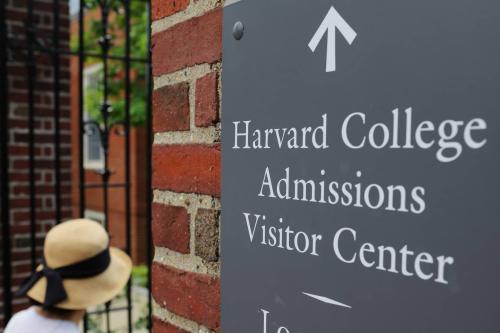When Arlene Ackerman announced her resignation as school superintendent for the District, Post columnist Marc Fisher [May 19] attempted to justify the loss with the catchall phrase “the schools are still a mess.” He painted Ackerman—one of the nation’s most highly regarded urban school reformers—as being “Nixonian in [her] zeal for control” and said she fought charter schools and other parent initiatives. But he avoided the real issue—a refusal on the part of some “haves” in this city to share scarce resources.
To suggest that nothing has changed under Ackerman is disingenuous, because she and her predecessor, Julius Becton, took on some of the toughest issues faced by any superintendent in recent memory. Remember Judge Kaye Christian’s closing the schools for failure to fix hundreds of fire-code violations that had existed for decades and that prior administrations had refused to deal with? It fell to Becton and Ackerman to fix problems brought on by such neglect.
Then came the hindrances thrown up by Ackerman’s many “bosses.” Despite them, she managed to find ways to make substantial progress. It was her refusal to bow to the special interest groups—i.e., “parent activists”—and politicians of every stripe, especially the city council, that proved to be her fatal “flaw.”
Prior to Becton and Ackerman, parents could “work the system” because it was so dysfunctional. For example, parents exerted enough influence in some schools to pick the teachers and complained loudly enough to get the administration to remove teachers and principals they didn’t like.
Look at Hearst Elementary School’s struggle last year. Only 40 percent of the children who live in the Hearst neighborhood attend the school. How many small schools such as Hearst would be allowed to survive if they were in the poor communities of the city?
Ward 3 elementary schools have long had the reputation of being “run” by the parents. In addition, these schools got more than their share of resources because of the “squeaky wheel” syndrome. Most of the residents of Ward 3 (in which I have lived since 1981) send their children to private schools after elementary school.
Ackerman recognized this as a serious problem and set out to get rid of the favoritism and bring a measure of sanity to the system. She appointed a diverse group of citizens to study the problem and recommend ways to implement a weighted per-pupil funding formula to ensure the equitable distribution of resources to schools. By starting to do the right thing, she created a host of enemies who would not relent until she was driven out.
Certain individuals and groups played critical roles in this. Kathy Patterson (D-Ward 3) took a leading role in the markup of the council’s Education Committee budget, which would have eliminated summer school for children for whom it was not mandatory. She also proposed that funds be cut for administering the SAT-9 test, and she added funds to the budget to direct Ackerman to organize a conference for the charter schools.
She is but one of the many critics on the council, in the mayor’s office, on the control board, in Congress and among the “parent activists” who feel they know more about how to reform a greatly underperforming urban school system than the superintendent. Would they tell their children’s pediatrician how to examine their children and recommend their own course of treatment?
The politicians have argued that they are performing their “oversight” role. I beg to differ. What Ackerman experienced was meddling, micro-management and abuse at the hands of those who do not like her because of the reforms she was making. We rarely hear these critics talk about what is in the best interests of the children. Instead, they attack the person.
Since we are airing these issues, we should question why the District’s fragile school system was used as a guinea pig by Congress to promote school choice. It makes no sense for the District to open as many as 20 charter schools yearly, while Maryland has one charter school and Virginia has none.
While the critics attack Ackerman for being less than enthusiastic in her support for charter schools, they fail to recognize that she has to provide a safety net for students who attend those charter schools that fail. She also has had to re-accept the 500-odd students who left the charter schools during the year and returned to the public schools with no concomitant funding. In addition, she has had to fix special education, which, with remedial education, consumes one-third of the budget.
What this city needs desperately is for the “haves” to understand and empathize with the desperation the economically disadvantaged feel when programs that bring hope to their children go up in smoke. Why can’t Ackerman’s critics understand that poor people want the best education for their children too? Do they ever think about the welfare of the children who do not live on their block or attend their kids’ schools?
Thousands of economically disadvantaged people found hope in Ackerman’s attempts to give their kids a fighting chance. How will we ensure now that these children will get the preparation to participate in the D.C. College Access program if we keep running superintendents out of town?
I am convinced that Arlene Ackerman, who is a colleague and friend, was making a critical difference in the lives of many children who have been written off and from whom little was expected. She knows that an investment in their education would help them work themselves out of poverty. Ackerman need not worry about whether she left a legacy. The latest SAT-9 scores say it all. In 1997, the year she began working for the D.C. Public Schools, only 11 percent of 10th graders were scoring at the basic level. Now 31 percent do so. There’s a long way to go, but that’s a lot of progress in three years.
The author is a senior fellow in government studies at the Brookings Institution and a former member of the D.C. financial control board.



Commentary
Op-edThe Ackerman Ambush
May 29, 2000